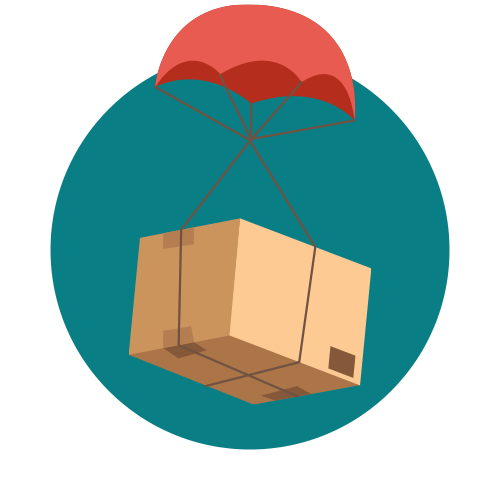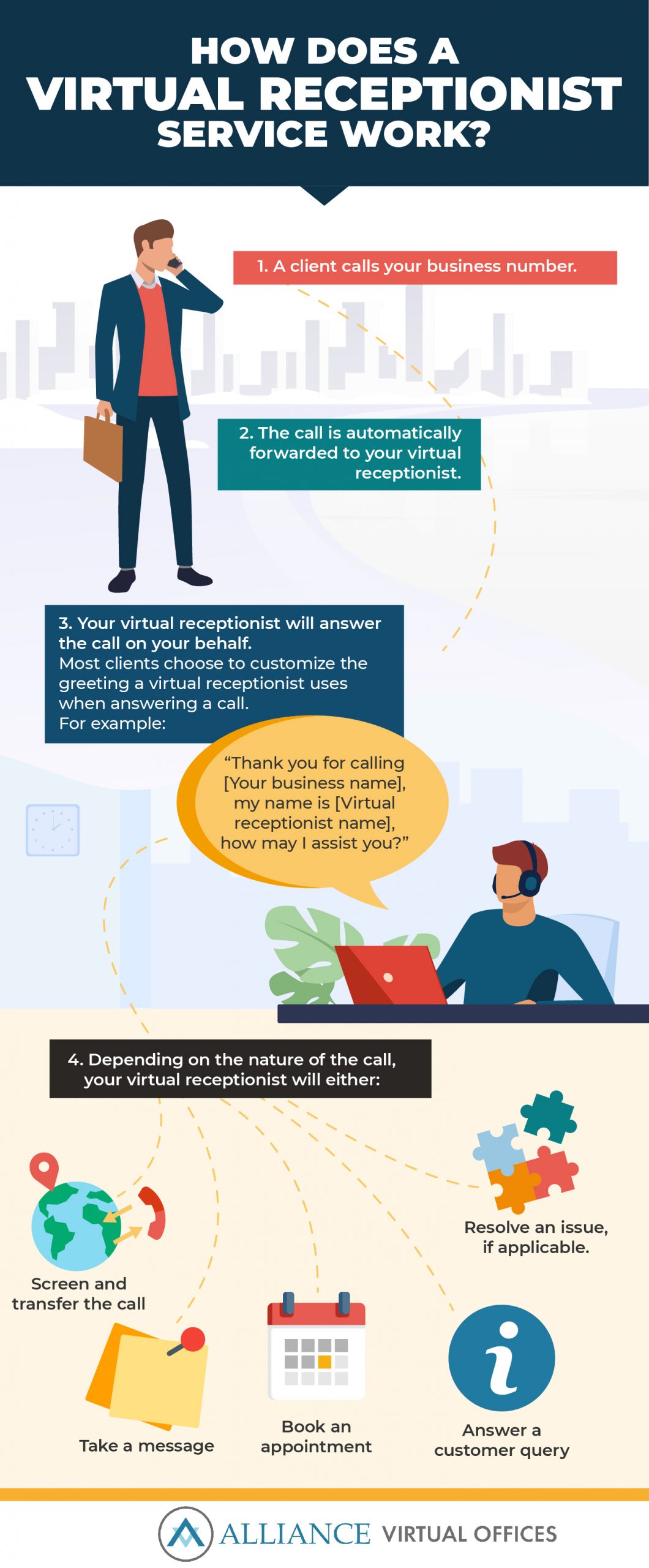- The Last Mile: Shipping’s Greatest Hurdle
- How Virtual Office Services Offer a Competitive Advantage
- Case Study: This Courier Business Runs on Virtual Office Services
Q: Why is the “last mile” of the shipping process so difficult and expensive for suppliers and what opportunities does this create for small business owners?
A: Last mile shipping cannot be done in bulk and requires lots of people and vehicles, making it expensive. It creates an opportunity for small courier businesses to grow and scale their services.
As soon as cities and countries went into lockdown due to the coronavirus pandemic, there was a surge in online shopping. One year later, even in areas where lockdown measures have been relaxed, the amount of people shopping online has not dwindled.
Even people who resisted eCommerce prior to the pandemic have been entirely won over by the convenience of ordering online and having things delivered to their doorstep.
While this is great news for companies—online shopping has been a lifeline for many companies—it has led to a breaking point in the supply chain and fulfillment process.
At the beginning of the pandemic, consumers increased their tolerance for longer delivery times; however, that tolerance wore off, and consumers today expect faster deliveries than ever before.
The increased demand for delivery services, and shorter delivery times, has supply chain company executives searching for solutions that can make deliveries more efficient—timewise and money-wise.
Not only can technology provide companies with a competitive advantage, it could potentially also help them significantly reduce cost and improve operational efficiency:
- Electric vehicles could cut gas expenses…as well as reduce a company’s carbon emissions.
- Artificial intelligence and analytics can help optimize delivery routes.
- Continuous intelligence can help companies gather and process data, which can provide valuable insights for strategic planning and decision making.
While focusing on technology can help make supply chains more efficient in the long run, there is a much more pressing matter that courier companies must address: the “last mile”.

The Last Mile
The last mile is the final step in the delivery process; it’s when a package arrives at a buyer’s doorstep. The last mile is known for being the most challenging and expensive part of the supply chain process. It’s also a key part of customer satisfaction.
To make matters worse, only 1% of customers are willing to foot the entire cost of delivery.
Capgemini argues that one way to make last mile deliveries more profitable is by encouraging multiple avenues for fulfillment resources.
Amazon knows this all too well, which is why its logistics division launched Amazon Delivery Service.
The strain that the increase in online shopping has placed on logistics has created a big business opportunity for SMBs in the delivery and courier industry.

How Small Courier Businesses Can Aid with the “Last Mile” Problems
The main issue with the last mile is that it is inefficient.
The doorstep delivery process is known for requiring numerous stops; depending on the area, delivery trucks may need to go off route to deliver a single package. In urban areas, the main issue is traffic.
To add to the problem, the more people shop online, the faster deliveries they expect.
Despite new technologies that help with route optimization and traffic prediction; delivery services continue to struggle with expediting deliveries.
This is where small courier businesses can come in.

A Look at Small Courier Businesses
The courier business is not for the faint of heart. Courier companies face a plethora of challenges in their day-to-day operations; some of which are completely out of their control (road closures, inclement weather).
To add to the strain, small courier businesses are constantly on the move; their value proposition is to deliver packages on time. This means that they rarely have time or resources to handle calls or improve their customer service experience.
This is a big issue:
The courier industry is highly competitive and excellent customer service can give small companies a valuable advantage.
But, as with many small or new businesses, there’s rarely enough cash at hand to spend on non-core business areas. In the case of courier companies, this might be office space, receptionists, and customer service representatives.
Given the nature of courier businesses, in that they are out and about delivering packages most of the day, the idea of an office space seems completely unnecessary. In fact, many courier business owners have found that they can easily run their business from home—even if it means their homes double as a warehouse.
So, why even bother thinking about office space?
Because it matters.
Ready Pak is a perfect example of how having the right office space and business support services can truly make a difference in the courier industry.

Virtual Offices Give Courier Businesses a Competitive Advantage
Even though courier businesses can operate remotely, they stand to benefit from having a physical business location—this is true of companies across all industries.
A physical business address can help companies remain professional; it can also help them establish credibility and legitimacy with potential clients.
A virtual office can help small courier businesses with maintaining a solid outward reputation even if the owner is running the business from home… at a quarter of the cost of a traditional office. But the benefits of virtual offices go beyond that for courier companies.
Most small courier businesses owners are actively involved in the day-to-day operations of the business, including driving vehicles to help with deliveries.
This means that they likely don’t have time in their day to answer calls.
This hurts business.
Customer satisfaction is, in large part, driven by quick response times and timely solution of issues. If a customer calls asking to change the delivery address or time, and no one picks up the phone, not only does this lead to an unhappy customer, but it can also increase business costs by creating a failed delivery attempt.
Virtual offices offer access to business support services, including live receptionists that can help with customer support efforts.
Live receptionists can:
- Answer calls.
- Answer commonly asked questions.
- Resolve customer queries and issues.
Virtual offices are a viable and attractive solution even if keeping expenses low is at the top of the agenda. Virtual offices are highly affordable, and plans can be customized to cater to your specific business needs.
Some additional benefits of virtual offices are they…

Case Study: ReadyPak Runs on Virtual Office Services
*Names and personal details have been edited.
ReadyPak is a small courier business based out of Melville, New York, owned by Anthony A.
Anthony grew up in a family with over 50 years of experience in the courier service industry. While he had the opportunity to take over and run the family business, he decided to forge his own path.
Anthony created his own courier brand, ReadyPak.
He already knew the basics of operating a small business, as he also ran a graphic design company. He wanted to focus on creating a courier business that would eliminate waste and cut unnecessary expenses.
Considering that net profits could fall by 26% over three years unless last mile delivery is optimized, cutting unnecessary expenses seems like a necessary top priority. Add COVID-19 to the mix, and cutting expenses seems like a top priority for businesses in almost any industry.
One area where Anthony realized he could significantly reduce costs was office space.
Unlike his graphic design company, the courier business had no real need for a full office space:
- His employees would spend most of the day in their vehicles, taking care of deliveries.
- He only needed office and meeting space for himself and his one assistant; the two of them also didn’t need to spend the entire day in an office setting. He needed only occasional access to meeting space.
- Walk-ins are virtually unheard of in today’s hyperconnected digital world. digital world.
- Furthermore, Walk-ins could potentially represent a security risk as most walk-ins want to pay in cash.
The solution Anthony landed on was to purchase a virtual office plan.
He did so via Alliance Virtual Offices.
Related: How to Start a Courier Business
After exploring the options available through Alliance Virtual Offices, Anthony picked a virtual office located in a suburban office park where his business would share an address with other reputable, well-known companies.
The process was simple, convenient, and—most importantly—affordable.
A virtual office not only enabled ReadyPak to cut expenses, but it can reduce the company’s risk.
Knowing full well that demand can drop at any time, not having any real estate commitments significantly reduces the company’s risk and liberates a significant percentage of cash. All while helping build the company’s brand and image.
Having a professional business address was also important for Anthony.
If he wanted to scale his courier team with high-quality trustworthy drivers, he needed to ensure that the company itself projected an image of professionalism and longevity.
A home address didn’t meet the criteria for this, as it could be a deterrent for top candidates applying for a job.
How to Get a Virtual Office for Your Business
If you’re interested in a virtual office for your business, the first step you need to take is to ensure that you find one via a reputable company, like Alliance Virtual Offices.
- Search Your Location
- Pick a Plan
- Customize to Fit Your Needs
- Fill Out Your Customer Info
- Accept the Terms of Service
- Checkout!

Conclusion & Further Reading
Courier businesses are only one example of the various types of companies that stand to benefit from virtual office services.
Just as the COVID-19 pandemic has led to an increase in online shopping, it has also led to an increase in remote work.
Both remote work and online shopping are here to stay.
Virtual offices are a valuable business tool that can support the current and future needs of remote businesses as they enable companies to become more flexible and agile, while helping them cut expenses and free up cash.





















